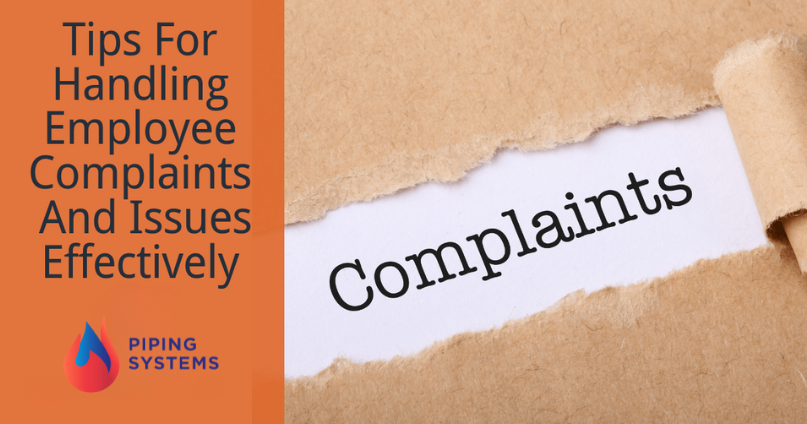Published August 26, 2019

Whenever there are people working together, there is the potential for problems and issues. Sometimes these are issues between a manager or a supervisor and an employee, sometimes they are between employees, or sometimes they are issues an employee has with the job. There are also some employees that seem to have grievances no matter what is happening in the workplace, and this can also be a challenge.
Regardless of the cause of the complaint, how you initially handle the issue when it is brought to your attention has a big impact on either resolving the issue or creating more of a problem.
To help create an effective way to handle complaints and grievances, consider these tips, strategies, and techniques. Remember, it is possible to use more than one, or add to your toolbox over time and with practice.
Undivided Attention
It may seem like people pick the worst possible times to come to you to talk about a problem. While you may be busy, resist the temptation to try to multitask, and instead take a few minutes to give the employee your undivided attention. By focusing in on their discussion, they feel heard and respected, which helps to calm him or her down while also demonstrating your concern without having to say a thing.
Let Them Finish and Then Ask Questions
Even if it may seem frivolous or unwarranted, let the employee finish talking before interrupting. It may be difficult to avoid giving your perspective, or perhaps bringing up similar past grievances.
Instead of immediately jumping in to make recommendations and to suggest solutions, ask open-ended questions. These are designed to get a bigger picture, and also to have the employee move from reacting to thinking about the incident. Ask specifics if the employee is giving generalizations. For example, if the employee says, “My supervisor treats me differently from the others on the team,” ask for a specific example.
If the employee is providing a lot of information, it may be reasonable to summarize or paraphrase what they said, then ask if that is correct. This should only be done occasionally, but it demonstrates you are listening while also giving them the chance to hear what they have said.
Ask For Solutions
Once the employee is calm and has provided details and information asking him or her how they would solve the issue can be a way to see what they expect from the discussion. Some employees may want changes made, while others may just want someone to be aware of the situation.
By talking through the problem, the employee may see ways that he or she could avoid the problem. Sometimes, the solution the employee wants is all about removing the other person or punishing him or her. To avoid this type of answer, phrase the question “What are some options you could think of to avoid this situation in the future?”
The faster issues are addressed, especially minor complaints and grievances, the easier they are to resolve. The longer a problem festers, the more challenging it is to rebuild damaged working relationships.
In fact, if you wish to be a part of our growing team check out our career page.